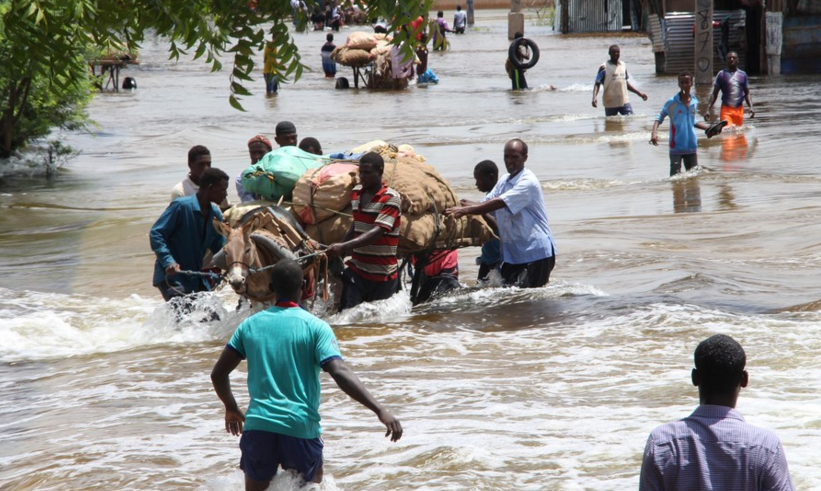
Nearly 200,000 affected by flash floods in Somalia, UN says

Flash floods caused by seasonal rains have affected about 191,800 people in Somalia since May and July, causing a humanitarian crisis in the regions affected, the UN Office for the Coordination of Humanitarian Affairs (OCHA) said on Thursday.
OCHA said residents have been displaced by floods across the Horn of Africa nation since late June.
“In many areas of southern and central Somalia, the ongoing Hagaa season rains have been heavier than previous years, with strong winds and lower temperatures reported,” OCHA said in its latest report on floods.
Residents have been affected by flash and riverine floods in Hirshabelle, SouthWest and Jubaland states.
Observed river levels along the Shabelle River are expected to continue rising further in the coming week following the foreseen rains.
nearly 147,579 hectares of farmland has been inundated in some 100 villages in Balcad, Jowhar and Mahaday districts. In the Banadir region, four internally displaced people died and hundreds have lost shelters, said the UN humanitarian agency.
Somalia is already struggling with COVID-19 and an invasion of desert locusts in the northern parts of the country which aggravate the situation by putting pressure on the country’s fragile health system, thereby causing a major public health crisis.
On July 21, the government called on aid agencies to swiftly respond to the humanitarian needs caused by the flash and riverine flooding in Lower and Middle Shabelle.
The government said the affected local population who fled their homes to the dry and high ground are now in dire need of humanitarian assistance.
The OCHA said humanitarian partners have ramped up responses to the triple threat by expanding flood assistance, but gaps remain in food, shelter and non-food items among others.
It said 15 million U.S. dollars from the Central Emergency Response Fund has been allocated to support a series of anticipatory action interventions in Somalia over the next 18 months. ■






